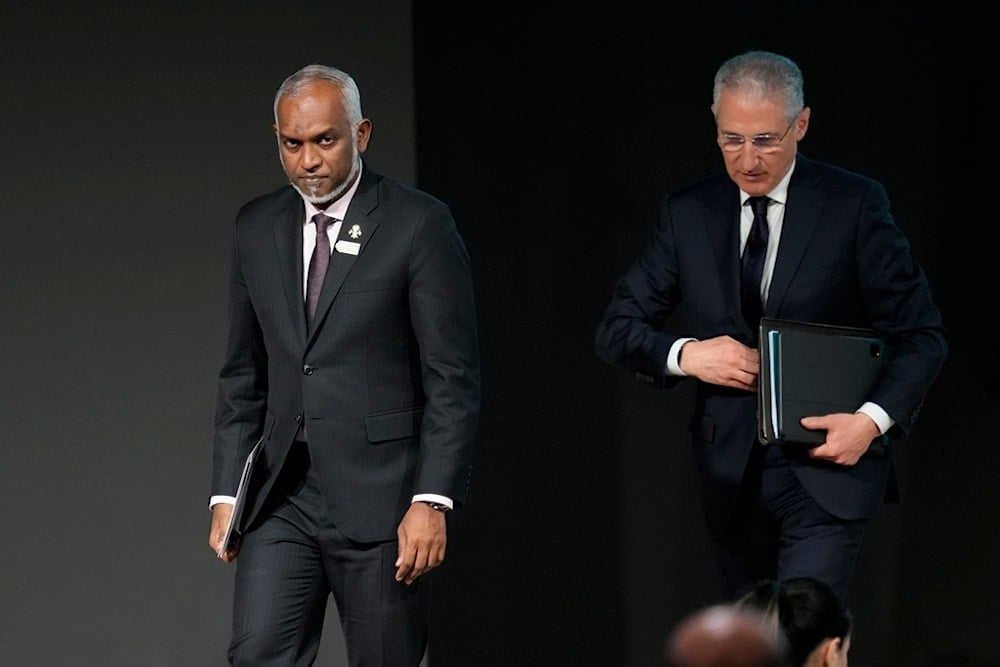Maldives’ Muizzu sets world record with 15-hour presser
Maldivian President Mohamed Muizzu sets a world record with a 15-hour press conference, marking World Press Freedom Day and Maldives’ rise in global media rankings.
-

Maldives President Mohamed Muizzu, left, walks next to Mukhtar Babayev, COP29 President, at a summit of the leaders of Small Islands Developing States during the COP29 UN Climate Summit, Wednesday, November 13, 2024, in Baku, Azerbaijan. (AP)
Maldivian President Mohamed Muizzu has reportedly set a new world record for the longest press conference held by a sitting head of state, after addressing journalists for nearly 15 hours on Saturday.
According to a statement issued by his office on Sunday, Muizzu began the session at 10:00 am local time and continued for 14 hours and 54 minutes, taking only brief pauses for prayers. The session, which ran past midnight, surpassed the previous record of 14 hours set by Ukrainian President Volodymyr Zelensky in 2019, which was double that set by Belarusian President Alexander Lukashenko.
“The conference extended past midnight – a new world record by a president – with President Muizzu continuously responding to questions from journalists,” the statement read.
The marathon event was scheduled to coincide with World Press Freedom Day. During the conference, Muizzu acknowledged the media's critical role in society and stressed the need for "factual, balanced, and impartial reporting."
Dozens of reporters in attendance
The president also fielded questions submitted by members of the public through journalists, further extending the range of issues addressed. The event was attended by around two dozen reporters, who were served food as the session progressed.
Muizzu, who assumed office in 2023, also used the occasion to highlight the Maldives' rise in the 2025 World Press Freedom Index. The country moved up two spots to rank 104th out of 180 countries, according to Reporters Without Borders.
The Indian Ocean island nation is no stranger to headline-making political statements. In 2009, then-president Mohamed Nasheed held the world's first underwater cabinet meeting, donning scuba gear alongside his ministers to draw attention to the existential threat climate change poses to the low-lying archipelago.
The Maldives, comprising 1,192 small coral islands, remains at serious risk from rising sea levels caused by global warming.

 2 Min Read
2 Min Read








